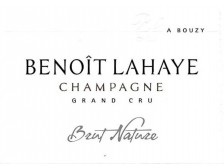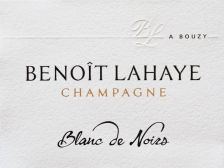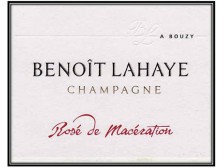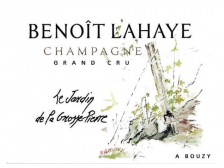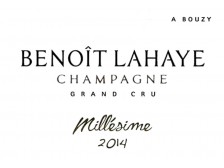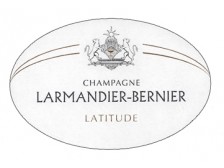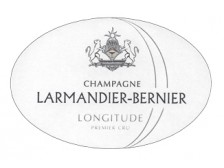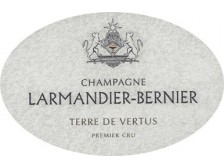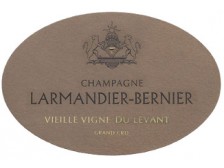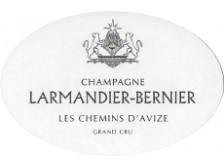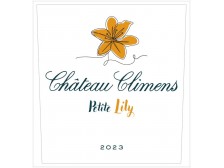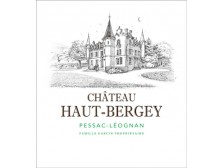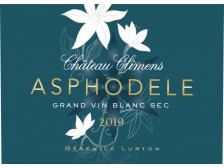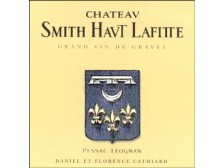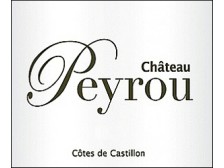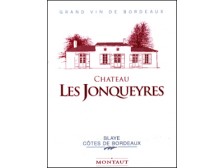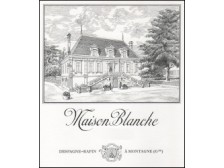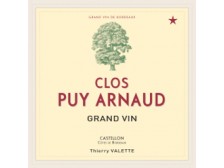Catalog
Other labels exist (Demeter, Biodyvin, Nature et Progrès...). These have more demanding specifications than organic farming but are not recognised by public agencies.
-
Since 1993, Valérie and Benoît Lahaye have been proving that a different kind of viticulture, one that respects the living world, is possible in Champagne. In their 5-hectare vineyard in Bouzy, they opted early on for organic vine management, ploughing the soil on horseback and reducing yields to promote aromatic concentration and terroir expression.
The Pinot Noir grape, which makes up the vast majority (88%) and is harvested at optimum ripeness, gives their Champagnes exceptional fruity intensity and persistence, enhanced by very low sugar and sulfur levels. The uniqueness of Benoît Lahaye's cuvées, but above all their quality and consistency, are unanimously acclaimed by the various critics: Gault & Millau named him Vigneron of the Year 2022, En Magnum considers him “one of the most gifted winemakers of his generation”, and the Revue du Vin de France has just awarded him a third star...Made with 50% reserve wine, Brut Nature has plenty of character. A true winemaker's champagne, combining the vinous aromas of Pinot Noir with an elegant, delicate structure.
Cuvée Brut nature in the press:
La Revue du Vin de France (Guide 2026): 91/100 “The brut nature stands out as one of the finest non-vintage champagnes on the market — a juice of remarkable purity and expression.”
Vinous (A. Galloni - March 2024): 92/100 "The NV Brut Nature Grand Cru is a blend of 90% Pinot Noir and 10% Chardonnay from Bouzy and Ambonnay. The creamy flesh of Red Delicious apples and a sense of springy, sweet, yeasty, challah bread define the nose. The sprightly mousse prickles on the smoot palate, highlighting saltiness and chalky depth with an enticing, beguiling tang of oyster shell. The finish is alluring, salty, tangy and long with a visceral umami echo."
Bettane + Desseauve (Guide 2026) : 92/100
More- To keep or to drink:
- Ready to drink
- Apogée:
- 2025-2030
- Organic certification:
- 2000
-
Since 1993, Valérie and Benoît Lahaye have been proving that a different kind of viticulture, one that respects the living world, is possible in Champagne. In their 5-hectare vineyard in Bouzy, they opted early on for organic vine management, ploughing the soil on horseback and reducing yields to promote aromatic concentration and terroir expression.
The Pinot Noir grape, which makes up the vast majority (88%) and is harvested at optimum ripeness, gives their Champagnes exceptional fruity intensity and persistence, enhanced by very low sugar and sulfur levels. The uniqueness of Benoît Lahaye's cuvées, but above all their quality and consistency, are unanimously acclaimed by the various critics: Gault & Millau named him Vigneron of the Year 2022, En Magnum considers him “one of the most gifted winemakers of his generation”, and the Revue du Vin de France has just awarded him a third star...100% pinot noir, the Blanc de Noirs is a model of power and vinosity, made for (very long) cellaring.
Cuvée Blanc de Noirs in the press:
La Revue du Vin de France (Guide 2026): 94/100 “The blanc de noirs seduces with its elegance: no heaviness, a creamy bubble that brings finesse and balance to the whole.”Bettane + Desseauve (Guide 2026) : 93/100
More- To keep or to drink:
- Ready to drink
- Apogée:
- 2025-2032
- Organic certification:
- 2000
-
Since 1993, Valérie and Benoît Lahaye have been proving that a different kind of viticulture, one that respects the living world, is possible in Champagne. In their 5-hectare vineyard in Bouzy, they opted early on for organic vine management, ploughing the soil on horseback and reducing yields to promote aromatic concentration and terroir expression.
The Pinot Noir grape, which makes up the vast majority (88%) and is harvested at optimum ripeness, gives their Champagnes exceptional fruity intensity and persistence, enhanced by very low sugar and sulfur levels. The uniqueness of Benoît Lahaye's cuvées, but above all their quality and consistency, are unanimously acclaimed by the various critics: Gault & Millau named him Vigneron of the Year 2022, En Magnum considers him “one of the most gifted winemakers of his generation”, and the Revue du Vin de France has just awarded him a third star...The Rosé de macération is made immediately after harvest, with a short maceration (60 hours) of 100% Pinot Noir in whole bunches, then matured in barrels and jars.
Cuvée Rosé de macération in the press:
La Revue du Vin de France (Guide 2025): 93/100 “Behind its scintillating fruit and well-integrated tannins, the wine possesses great tannic length without any astringency. The low dosage suits it like a glove”.More- To keep or to drink:
- Ready to drink
- Apogée:
- 2025-2030
- Organic certification:
- 2000
-
Since 1993, Valérie and Benoît Lahaye have been proving that a different kind of viticulture, one that respects the living world, is possible in Champagne. In their 5-hectare vineyard in Bouzy, they opted early on for organic vine management, ploughing the soil on horseback and reducing yields to promote aromatic concentration and terroir expression.
The Pinot Noir grape, which makes up the vast majority (88%) and is harvested at optimum ripeness, gives their Champagnes exceptional fruity intensity and persistence, enhanced by very low sugar and sulfur levels. The uniqueness of Benoît Lahaye's cuvées, but above all their quality and consistency, are unanimously acclaimed by the various critics: Gault & Millau named him Vigneron of the Year 2022, En Magnum considers him “one of the most gifted winemakers of his generation”, and the Revue du Vin de France has just awarded him a third star...From a plot planted with vines, Le Jardin de la Grosse Pierre combines pinot noir with several ancient grape varieties: arbanne, petit meslier, pinot blanc... Singular and captivating.
More- To keep or to drink:
- Ready to drink
- Apogée:
- 2025-2033
- Organic certification:
- 2000
-
Since 1993, Valérie and Benoît Lahaye have been proving that a different kind of viticulture, one that respects the living world, is possible in Champagne. In their 5-hectare vineyard in Bouzy, they opted early on for organic vine management, ploughing the soil on horseback and reducing yields to promote aromatic concentration and terroir expression.
The Pinot Noir grape, which makes up the vast majority (88%) and is harvested at optimum ripeness, gives their Champagnes exceptional fruity intensity and persistence, enhanced by very low sugar and sulfur levels. The uniqueness of Benoît Lahaye's cuvées, but above all their quality and consistency, are unanimously acclaimed by the various critics: Gault & Millau named him Vigneron of the Year 2022, En Magnum considers him “one of the most gifted winemakers of his generation”, and the Revue du Vin de France has just awarded him a third star...The Grand Cru Millésime 2014, made up of 80% pinot noir and 20% chardonnay, is the sincerest expression of the Bouzy terroir, full of length and distinction.
More- To keep or to drink:
- Ready to drink
- Apogée:
- 2025-2030
- Organic certification:
- 2000
-
Since 1993, Valérie and Benoît Lahaye have been proving that a different kind of viticulture, one that respects the living world, is possible in Champagne. In their 5-hectare vineyard in Bouzy, they opted early on for organic vine management, ploughing the soil on horseback and reducing yields to promote aromatic concentration and terroir expression.
The Pinot Noir grape, which makes up the vast majority (88%) and is harvested at optimum ripeness, gives their Champagnes exceptional fruity intensity and persistence, enhanced by very low sugar and sulfur levels. The uniqueness of Benoît Lahaye's cuvées, but above all their quality and consistency, are unanimously acclaimed by the various critics: Gault & Millau named him Vigneron of the Year 2022, En Magnum considers him “one of the most gifted winemakers of his generation”, and the Revue du Vin de France has just awarded him a third star...The Grand Cru Millésime 2014, made up of 80% pinot noir and 20% chardonnay, is the sincerest expression of the Bouzy terroir, full of length and distinction.
More- To keep or to drink:
- Ready to drink
- Apogée:
- 2024-2032
- Organic certification:
- 2000
-
Pierre and Sophie Larmandier are among the precursors of biodynamic wines. On their 16 ha vineyard in the south of the Côte des Blancs, they produce champagnes of exemplary naturalness and frankness. Very low (or even no) dosage because they are made from perfectly ripe grapes, their vintages express with precision the aromatic intensity and the delicacy of the greatest chardonnays of Champagne. In short, Larmandier-Bernier obtains with its chardonnays what Égly-Ouriet achieves with its pinots noirs.
The elegance and consistency of Larmandier-Bernier champagnes is praised by Bettane & Desseauve: “Few wineries in any region can boast such consistency at this high level”. Estate rated two stars in the Revue du Vin de France's annual guide.
A 100% Chardonnay cuvée from a rich terroir south of Vertus, Latitude is a round champagne for pleasure.
Cuvée 100% chardonnay.
Lattitude Blanc de blancs” in the press:
La Revue du Vin de France (December 2019): 91/100 “Very nice saline élan with a pulpy sensation.”
Vinous (A. Galloni - November 2025): 94/100 “The NV (2022) Extra Brut Blanc de Blancs Latitude 1er Cru is stellar in this range. Broad and ample, the Latitude is so impressive. Lemon confit, marzipan, tangerine peel, mint and chalk are dialed up. More than anything else, I am so impressed with the wine's sheer palate presence. There's gorgeous density and character here. This release is based on 2022, with the addition of 40% reserve wines. Dosage is 2 grams per liter.”
More- To keep or to drink:
- Ready to drink
- Apogée:
- 2025-2028
- Organic certification:
- 2003
- Potential alcohol:
- 12.5%
- Grape varieties:
- 100% chardonnay
-
Pierre and Sophie Larmandier are among the precursors of biodynamic wines. On their 16 ha vineyard in the south of the Côte des Blancs, they produce champagnes of exemplary naturalness and frankness. Very low (or even no) dosage because they are made from perfectly ripe grapes, their vintages express with precision the aromatic intensity and the delicacy of the greatest chardonnays of Champagne. In short, Larmandier-Bernier obtains with its chardonnays what Égly-Ouriet achieves with its pinots noirs.
The elegance and consistency of Larmandier-Bernier champagnes is praised by Bettane & Desseauve: “Few wineries in any region can boast such consistency at this high level”.
Estate rated two stars in the Revue du Vin de France's annual guide.
Cuvée 100% chardonnay.
The cuvée “Longitude 1er cru - Blanc de blancs” in the press:
La Revue du Vin de France (Guide 2026): 90/100 “Longitude perfectly embodies the archetype of a blanc de blancs designed for aperitifs: a wine for pleasure, refreshing, sincere and full of energy.”
Vinous (A. Galloni - November 2025): 93/100 “The NV (2021) Extra Brut Blanc de Blancs Longitude 1er Cru shows the lighter, airier side of the year. Crushed rocks, lemon peel, white pepper, slate and chalk all confer brightness. This sculpted, saline Blanc de Blancs is impeccable. The Longitude is a blend of parcels in Vertus, Cramant, Avize and Oger.”
Bettane + Desseauve (Guide 2026) : 94/100
More- To keep or to drink:
- Ready to drink
- Apogée:
- 2025-2030
- Organic certification:
- 2003
- Potential alcohol:
- 12.5%
- Grape varieties:
- 100% Chardonnay
-
Pierre and Sophie Larmandier are among the precursors of biodynamic wines. On their 16 ha vineyard in the south of the Côte des Blancs, they produce champagnes of exemplary naturalness and frankness. Very low (or even no) dosage because they are made from perfectly ripe grapes, their vintages express with precision the aromatic intensity and the delicacy of the greatest chardonnays of Champagne. In short, Larmandier-Bernier obtains with its chardonnays what Égly-Ouriet achieves with its pinots noirs.
The elegance and consistency of Larmandier-Bernier champagnes is praised by Bettane & Desseauve: “Few wineries in any region can boast such consistency at this high level”.
Estate rated two stars in the Revue du Vin de France's annual guide.
The cuvée “Terre de Vertus 1er cru Non Dosé - Blanc de blancs 2017” in the press:
La Revue du Vin de France (Guide 2026): 92/100 “Terre de Vertus 2017 confirms its natural ease and already seductive structure.”
Vinous (A. Galloni - March 2024): 93/100 “The 2017 Brut Nature Blanc de Blancs Terre de Vertus 1er Cru is creamy, open-knit and quite seductive. Readers will find a generous, sensual Champagne with plenty of early appeal. Vinification and aging in oak softens the contours. Dried pear, crushed flowers, mint and chamomile build beautifully over time. This is a fine effortin a very challenging year."
Bettane + Desseauve (Guide 2026) : 92/100
More- To keep or to drink:
- Ready to drink
- Apogée:
- 2024-2032
- Organic certification:
- 2003
-
Pierre and Sophie Larmandier are among the precursors of biodynamic wines. On their 16 ha vineyard in the south of the Côte des Blancs, they produce champagnes of exemplary naturalness and frankness. Very low (or even no) dosage because they are made from perfectly ripe grapes, their vintages express with precision the aromatic intensity and the delicacy of the greatest chardonnays of Champagne. In short, Larmandier-Bernier obtains with its chardonnays what Égly-Ouriet achieves with its pinots noirs.
The elegance and consistency of Larmandier-Bernier champagnes is praised by Bettane & Desseauve: “Few wineries in any region can boast such consistency at this high level”.
Estate rated two stars in the Revue du Vin de France's annual guide.
The cuvée “Vieille Vigne du Levant Grand cru - Blanc de blancs 2014” in the press:
La Revue du Vin de France (Guide 2025): 92/100 “Vieille Vigne du Levant is full-bodied, but the aromatic register seems a little evolved to us, which is surprising. The nose reveals notes of diacetyl, brioche, date and dried fruit.”
Vinous (Antonio Galloni - March 2024): 94/100 "The 2018 Extra-Brut Blanc de Noirs is an understated wine, as so many Champagned are in 2018. This is an especially brisk, floral style of Blanc de Noirs, the result of a choice of villages (Avenay-Val-d'Or, Mareuil, Mailly, Vertus? Ecueil), The decision to partially block the malolactic fermentation and dosage that is on the low side. Grapefruit, white flowers, mint, chalk and dried herbs are finely cut."
More- To keep or to drink:
- Ready to drink
- Apogée:
- 2024-2033
- Organic certification:
- 2003
-
Pierre and Sophie Larmandier are among the precursors of biodynamic wines. On their 16 ha vineyard in the south of the Côte des Blancs, they produce champagnes of exemplary naturalness and frankness. Very low (or even no) dosage because they are made from perfectly ripe grapes, their vintages express with precision the aromatic intensity and the delicacy of the greatest chardonnays of Champagne. In short, Larmandier-Bernier obtains with its chardonnays what Égly-Ouriet achieves with its pinots noirs.
The elegance and consistency of Larmandier-Bernier champagnes is praised by Bettane & Desseauve: “Few wineries in any region can boast such consistency at this high level”.
Created in 2009, the cuvée Les Chemins d'Avize, 100% chardonnay, comes from a parcel selection of their terroirs grand cru of Avize.
Estate rated two stars in the Revue du Vin de France's annual guide.
Les Chemins d'Avize Grand cru - Blanc de blancs 2016” in the press:
La Revue du Vin de France (Guide 2026): 95/100 Coup de ♥ “Les Chemins d'Avize stands out as a great wine. We have the privilege of tasting it for the second year running, and the wine continues to gain depth and finesse.”
Vinous (A. Galloni - March 2024): 94/100 “The 2016 Extra Brut Les Chemins d'Avize Blanc de Blancs Grand Cru is a very pretty, exotic Champagne. White flowers, mint, chalk, white pepper and crushed rocks are finely sculpted. Low dosage of 2 grams per liter adds notable tension and verve throughout This savory, super-excessive Champagne will be a fine companion at the dinner table."Bettane + Desseauve (Guide 2026) : 94/100
More- To keep or to drink:
- Ready to drink
- Apogée:
- 2025-2035
- Organic certification:
- 2003
-
Like its Sauternes Grand Cru Classé neighbors, Climens has been developing a range of dry white wines since 2018, all 100% Semillon. The range begins with Petite Lily, aged 8 months in stainless concrete tanks, an irresistible delicacy endowed with a lovely fatness.
The 2023 vintage in the press:
La Revue du Vin de France (Guide 2026) : 91/100 "Petite Lily is an impulsive, engaging cuvée, ripe but playful, deliciously floral and apricot-flavoured."
Vinous (N. Martin - April 2025): 90/100 "It has an attractive nose, with well-defined beeswax, light chalk and lime aromas that gain intensity in the glass. The palate is balanced, with a touch of almond and white peach on the entry. A keen line of acidity, plenty of energy and "bite" on the finish make this a very delicious dry white Sémillon that should age well in bottle."
Bettane + Desseauve (Guide 2026) : 88/100
More- To keep or to drink:
- Ready to drink
- Apogée:
- 2025-2030
- Grape varieties:
- 100% Sémillon
-
A family property reawakened in 2011 by the arrival of the son Paul Garcin, a former rock musician on the Bordeaux scene. Instant passage in organic and biodynamic culture, wines of artist, intuitive, immediately sapid, tasty and with the strong note pleasure, for white wines as for reds. This approach is praised by the Revue du Vin de France: "Modernity of vision and the ability to reinvent itself without betraying its identity: Haut-Bergey symbolizes the current vitality of the most historic of Bordeaux's vineyards".
More- To keep or to drink:
- Ready to drink
- Apogée:
- 2024-2032
- Organic certification:
- 2015
-
A family property reawakened in 2011 by the arrival of the son Paul Garcin, a former rock musician on the Bordeaux scene. Instant passage in organic and biodynamic culture, wines of artist, intuitive, immediately sapid, tasty and with the strong note pleasure, for white wines as for reds. This approach is praised by the Revue du Vin de France: "Modernity of vision and the ability to reinvent itself without betraying its identity: Haut-Bergey symbolizes the current vitality of the most historic of Bordeaux's vineyards".
The 2019 vintage in the press:
La Revue du Vin de France (September 2022): 92/100 “An original, accomplished style, far from varietal. The flavor of this wine, in which Sauvignon is in the majority, is subtly praline-like while remaining fresh and vibrant. The softness of the flesh is very welcoming. The wine has evolved well over the past year, showing no signs of fatigue”.
Bettane et Desseauve (Guide 2024): 91/100
More- To keep or to drink:
- Ready to drink
- Apogée:
- 2023-2030
- Organic certification:
- 2015
-
A family property reawakened in 2011 by the arrival of the son Paul Garcin, a former rock musician on the Bordeaux scene. Instant passage in organic and biodynamic culture, wines of artist, intuitive, immediately sapid, tasty and with the strong note pleasure, for white wines as for reds. This approach is praised by the Revue du Vin de France: "Modernity of vision and the ability to reinvent itself without betraying its identity: Haut-Bergey symbolizes the current vitality of the most historic of Bordeaux's vineyards".
More- To keep or to drink:
- Ready to drink
- Apogée:
- 2021-2028
- Organic certification:
- 2015
-
Like its Sauternes Grand Cru Classé neighbors, Climens has been developing a range of dry white wines since 2018, all 100% Semillon. Asphodèle (wild lily) is their main cuvée, aged 9 months in concrete tank, dynamic and expressive (floral and buttery notes), “Asphodèle can establish itself in great vintages as one of the best whites in the whole Bordeaux region” as written by M. Bettane.
The 2019 vintage in the press:
La Revue du Vin de France (Guide 2024): 93/100 “Pure Semillon, Asphodèle 2019, is undeniably one of the most original and interesting propositions among the new wave of dry white wines produced in the Sauternes area. It develops with great charm notes of fresh hazelnut, as well as a florality suggesting up to violet, over the course of a lively body.”
Vinous (N. Martin - February 2023): 90/100 "The 2019 Asphodèle de Climens has a pretty green apple and Anjou pear nose, well-defined with good intensity. The palate is well-balanced with a crisp gooseberry and nettle entry, touches of white tea and quite a complex finish. Very fine if early drinking."
Bettane + Desseauve (Guide 2026) : 92/100
More- To keep or to drink:
- Ready to drink
- Apogée:
- 2024-2032
- Grape varieties:
- 100% Sémillon
-
Smith Haut Lafitte's white wine has built up a solid reputation over the past 20 years, even though it is not a grand cru classé (but neither are Haut-Brion blanc and Pape-Clément blanc). A happy marriage of wood and fruit, it always delivers a beautiful aromatic complexity, from lime blossom to citrus fruit, and a lively, rich, fine structure.
More- To keep or to drink:
- Wait 1 to 2 years
- Apogée:
- 2027-2035
- Organic certification:
- 2019
- Grape varieties:
- 90% Sauvignon blanc, 5% Sauvignon gris, 5% Sémillon
-
Smith Haut Lafitte's white wine has built up a solid reputation over the past 20 years, even though it is not a grand cru classé (but neither are Haut-Brion blanc and Pape-Clément blanc). A happy marriage of wood and fruit, it always delivers a beautiful aromatic complexity, from lime blossom to citrus fruit, and a lively, rich, fine structure.
The 2022 vintage in the press:
La Revue du Vin de France (Guide 2026): 91/100 "Smith Haut Lafitte goes far in terms of the sweetness and maturity of the fruit. Its flamboyant style seems to be further accentuated by the character of the vintage. The exotic flavour, suggesting passion fruit and pineapple with a hint of coconut milk, echoes a velvety, even languid texture! Slightly overwhelmed by its alcoholic richness, a corollary of its generosity, the wine nevertheless displays poise and authority, expressed through a long finish of flavours with a hint of bitterness."
Vinous (N. Martin - January 2025): 96/100 "The 2022 Smith Haut Lafitte Blanc is superb. What a wine. Rich, ample and creamy, with striking balance, the 2022 dazzles from start to finish. Ripe pear, tangerine peel, chamomile, mint and a kiss of spice all meld together in a stunning Blanc that belies the warm, dry year. Plush, generous contours wrap it all togaether in style. The blance here is magnificent."
J-M Quarin (February 2025): 97/100 "Pale yellow colour. Very aromatic nose, fine, with ripe fruit, developing superbly when the glass is shaken. Floral and buttery nuances. Hints of liquorice and even chardonnay. Once again, the tactile grace of this wine sweeps the palate away and shatters any attempt to describe it, as it melts, perfumes and stretches out long, delicate, powerful and airy all at once. Enjoy it now!"
Bettane + Desseauve (Guide 2026) : 94/100
More- To keep or to drink:
- Wait 1 to 2 years
- Apogée:
- 2027-2035
- Organic certification:
- 2019
-
Smith Haut Lafitte's white wine has built up a solid reputation over the past 20 years, even though it is not a grand cru classé (but neither are Haut-Brion blanc and Pape-Clément blanc). A happy marriage of wood and fruit, it always delivers a beautiful aromatic complexity, from lime blossom to citrus fruit, and a lively, rich, fine structure.
The 2020 vintage in the press:
Vinous (A. Galloni - February 2023): 95/100 "The 2020 Smith Haut Lafitte Blanc is superb. Élevage has done wonders in lending energy and brilliance. The 2020 shows the soft curves of the warm vintage, but it has tons of energy, too. That makes for an aboslutely brilliant, compelling white that delivers on so many levels. The 2020 offers enough approachability to drink well now, but also the energy to develop well in bottle for many years to come."
J-M Quarin (March 2023): 97/100 "Yellow color with green highlights. Intense, fine, fruity and pure nose. A touch of truffle when the glass is shaken. Extremely meticulous on entry, very aromatic in the middle, with a delicate port and a touch of candied orange, the wine glides across the palate on a melting body. Very hedonistic, it evolves powerfully towards a long, delicate and noble finish. Superb!"
More- To keep or to drink:
- Ready to drink
- Apogée:
- 2025-2035
- Organic certification:
- 2019
-
Mrs Papon-Nouvel is known for her 2 wonderful Saint-Émilion wines: Clos Saint-Julien and Petit-Gravet Aîné. But it also owns Peyrou, a small vineyard (10 hectares) in the Côtes de Castillon region, which is organically farmed and produces a sapid, juicy wine with an obvious and exciting fruitiness (90% Merlot).
More- To keep or to drink:
- Ready to drink
- Apogée:
- 2025-2031
- Organic certification:
- 2011
-
Mrs Papon-Nouvel is known for her 2 wonderful Saint-Émilion wines: Clos Saint-Julien and Petit-Gravet Aîné. But it also owns Peyrou, a small vineyard (10 hectares) in the Côtes de Castillon region, which is organically farmed and produces a sapid, juicy wine with an obvious and exciting fruitiness (90% Merlot).
More- To keep or to drink:
- Ready to drink
- Apogée:
- 2024-2030
- Organic certification:
- 2011
-
Mrs Papon-Nouvel is known for her 2 wonderful Saint-Émilion wines: Clos Saint-Julien and Petit-Gravet Aîné. But it also owns Peyrou, a small vineyard (10 hectares) in the Côtes de Castillon region, which is organically farmed and produces a sapid, juicy wine with an obvious and exciting fruitiness (90% Merlot).
More- To keep or to drink:
- Ready to drink
- Apogée:
- 2023-2030
- Organic certification:
- 2011
-
Described as "exemplary Blaye" by Mr. Bettane, Les Jonqueyres, 90% of which is made with 50-year-old Merlot on deep clays, enchants with a fruity taste that is always pure, distinguished and above all very tasty.
2019 is the last vintage of Jonqueyres under the guidance of the excellent and passionate owner Pascal Montaut who retired after 38 vintages without fertilizers or chemical inputs.
More- To keep or to drink:
- Ready to drink
- Apogée:
- 2024-2030
-
Described as "exemplary Blaye" by Mr. Bettane, Les Jonqueyres, 90% of which is made with 50-year-old Merlot on deep clays, enchants with a fruity taste that is always pure, distinguished and above all very tasty.
2019 is the last vintage of Jonqueyres under the guidance of the excellent and passionate owner Pascal Montaut who retired after 38 vintages without fertilizers or chemical inputs.
More- To keep or to drink:
- Ready to drink
- Apogée:
- 2024-2032
-
Described as "exemplary Blaye" by Mr. Bettane, Les Jonqueyres, 90% of which is made with 50-year-old Merlot on deep clays, enchants with a fruity taste that is always pure, distinguished and above all very tasty.
2019 is the last vintage of Jonqueyres under the guidance of the excellent and passionate owner Pascal Montaut who retired after 38 vintages without fertilizers or chemical inputs.
More- To keep or to drink:
- Ready to drink
- Apogée:
- 2022-2032
-
Described as "exemplary Blaye" by Mr. Bettane, Les Jonqueyres, 90% of which is made with 50-year-old Merlot on deep clays, enchants with a fruity taste that is always pure, distinguished and above all very tasty.
2019 is the last vintage of Jonqueyres under the guidance of the excellent and passionate owner Pascal Montaut who retired after 38 vintages without fertilizers or chemical inputs.
More- To keep or to drink:
- Ready to drink
- Apogée:
- 2019-2028
- Potential alcohol:
- 14%
-
Mr. Despagne's obsession is to produce the most lively wine in his family estate, planted with old varieties of Merlot and Cabernet. After organic cultivation in the vineyard, any modern input or process is banned in the vat room: no dry ice, yeasts, enzymes, tartaric acid, oak chips... A pure fermented grape juice, aged in barrels for 12 to 18 months and bottled without filtration or fining, promised to keep well and for a long time.
More- To keep or to drink:
- Wait 1 to 2 years
- Apogée:
- 2027-2035
- Organic certification:
- 2009
-
Mr. Despagne's obsession is to produce the most lively wine in his family estate, planted with old varieties of Merlot and Cabernet. After organic cultivation in the vineyard, any modern input or process is banned in the vat room: no dry ice, yeasts, enzymes, tartaric acid, oak chips... A pure fermented grape juice, aged in barrels for 12 to 18 months and bottled without filtration or fining, promised to keep well and for a long time.
More- To keep or to drink:
- Ready to drink
- Apogée:
- 2024-2032
- Organic certification:
- 2009
-
With 12 hectares cultivated in biodynamic farming, certified since the 2008 vintage, Clos Puy-Arnaud is one of the great Côtes de Castillon wines that have nothing to envy to neighbouring Saint-Émilion.
Uncompromising, the great wine that has made the estate's reputation is an authentic cuvée, straightforward, deep and made for laying down.More- To keep or to drink:
- Wait 3 to 5 years
- Apogée:
- 2028-2038
- Organic certification:
- 2001
- Potential alcohol:
- 14%
-
With 12 hectares cultivated in biodynamic farming, certified since the 2008 vintage, Clos Puy-Arnaud is one of the great Côtes de Castillon wines that have nothing to envy to neighbouring Saint-Émilion.
Uncompromising, the great wine that has made the estate's reputation is an authentic cuvée, straightforward, deep and made for laying down.The 2022 vintage in the press:
La Revue du Vin de France (September 2025): 92/100 "2022 delivers highly concentrated reds with a ripe, vibrant bouquet: this Grand Vin (70% Merlot, 25% Cabernet Sauvignon) is at the beginning of a radiant life, expressing itself with great frankness of flavour."
En Magnum (May 2025): "Its asteriated limestone terroir (the same as on the Saint-Émilion plateau) lends finesse and freshness to remarkable wines. A brilliant 2022 with a wine that displays aromatic power, a full attack and great energy."
Vinous (A. Galloni - January 2025): 94/100 "The 2022 Clos Puy Arnaud is a dense, extroverted wine. Inky dark fruit, licorice, menthol and cloves are all amplified. Usually ClosPuy Arnaud is more refined, but in 2022, the vintage dominates and speaks loudly. Even so, this is a compelling offering. I look forward to tasting it with bottle age."
J.M Quarin (February 2025): 90/100 "Dark, intense, young colour. Very aromatic nose, with very ripe fruit and truffles. Delicate on the palate, savoury in the middle, with a soft body, the wine finishes sappy and long with a finely chalky tannicity."
Bettane + Desseauve (Guide 2026) : 93/100
More- To keep or to drink:
- Wait 5 to 10 years
- Apogée:
- 2030-2040
- Organic certification:
- 2001
- Potential alcohol:
- 14%


